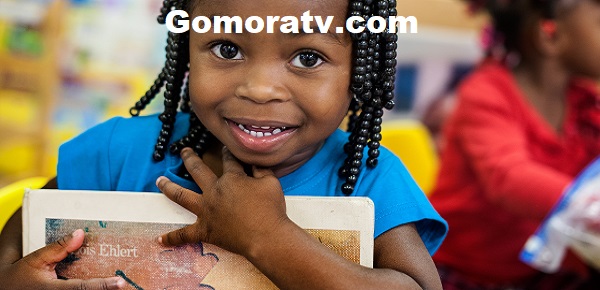The Importance of Child Donation in the United States: A Professional Perspective
Child donation is a crucial aspect of philanthropy in the United States, playing a significant role in supporting the well-being and development of children in need. The act of child donation involves providing financial assistance, resources, and support to organizations that work tirelessly to improve the lives of underprivileged children across the country. This article aims to discuss the importance of child donation from a professional perspective, highlighting the positive impact it can have on the lives of these children and the wider society as a whole.
Supporting Vulnerable Children
Child donation in the United States plays a pivotal role in supporting vulnerable children who may be exposed to adverse circumstances such as poverty, abuse, or neglect. By contributing to organizations dedicated to child welfare, individuals and businesses can help ensure these children receive the care, attention, and resources they need to thrive. Child donation initiatives help provide a safe and nurturing environment for children who may have experienced trauma or are at risk of falling through the cracks of an overwhelmed social welfare system.
Educational Opportunities
Child donation often focuses on providing educational opportunities to children in need. Access to quality education is a fundamental right of every child, yet many children in underserved communities face barriers in accessing adequate educational resources. By contributing to child donation initiatives, individuals and organizations can help level the playing field, giving underprivileged children the chance to receive a quality education that can shape their future and break the cycle of poverty.

Healthcare and Nutrition
Ensuring that children have access to proper healthcare and nutrition is essential for their overall well-being and development. Unfortunately, many children in the United States do not have access to adequate healthcare or proper nutrition due to a variety of reasons, including limited financial resources. Child donation supports programs aimed at improving children’s health outcomes and reducing health disparities. By donating, individuals can contribute to initiatives that provide medical care, nutritious meals, and essential supplies to children in need.
Mental Health Support
Childhood is a critical period for mental and emotional development. Unfortunately, many children in the United States face various mental health challenges, ranging from anxiety and depression to the long-lasting effects of trauma. Child donation plays a vital role in supporting mental health services and programs that help children overcome these obstacles. By donating to organizations focused on child mental health, individuals can ensure that these children receive the necessary support and therapy to grow into healthy and resilient adults.
Advocacy and Policy Changes
In addition to providing direct support and resources to children in need, child donation also plays a significant role in advocating for policy changes that positively impact children’s lives. Organizations that work in the field of child welfare leverage donations to fund research, raise awareness, and lobby for changes in legislation, ensuring that the voices of vulnerable children are heard at all levels of government. By supporting child donation initiatives, individuals can contribute to systemic changes that result in long-term improvements in the lives of children across the United States.
Raising Social Responsibility
Child donation fosters a sense of social responsibility within individuals and businesses. By supporting children in need, donors can actively contribute to the betterment of society and help build a more equitable future. Child donation initiatives allow individuals to make a tangible difference in the lives of children who are the most vulnerable and deserving of support. Moreover, organizations that prioritize child donation show their commitment to corporate social responsibility, enhancing their reputation and positively influencing consumer perception.
Development Of Underprivileged
Child donation in the United States is of utmost importance in ensuring the well-being and development of underprivileged children. By supporting child donation initiatives, individuals and organizations play a significant role in providing access to education, healthcare, nutrition, and mental health support for vulnerable children. Additionally, child donation allows for advocacy and policy changes that can create a lasting impact on children’s lives. It is only through collective efforts and contributions that we can shape a better future for these promising young lives and build a more inclusive and compassionate society.